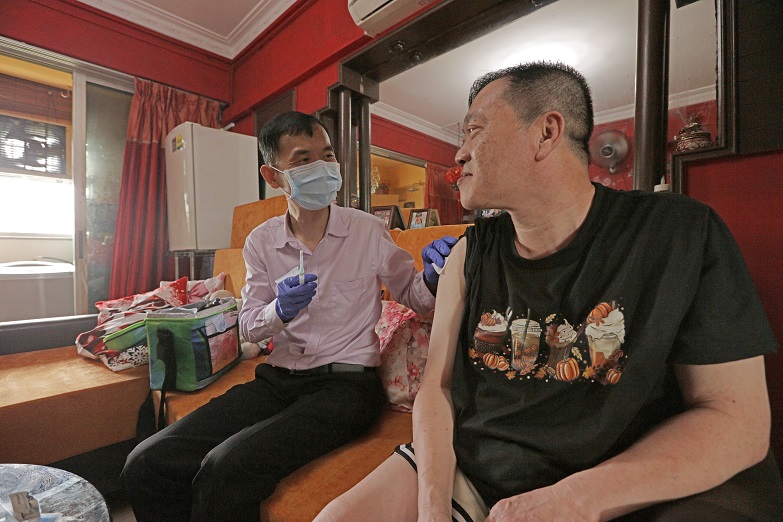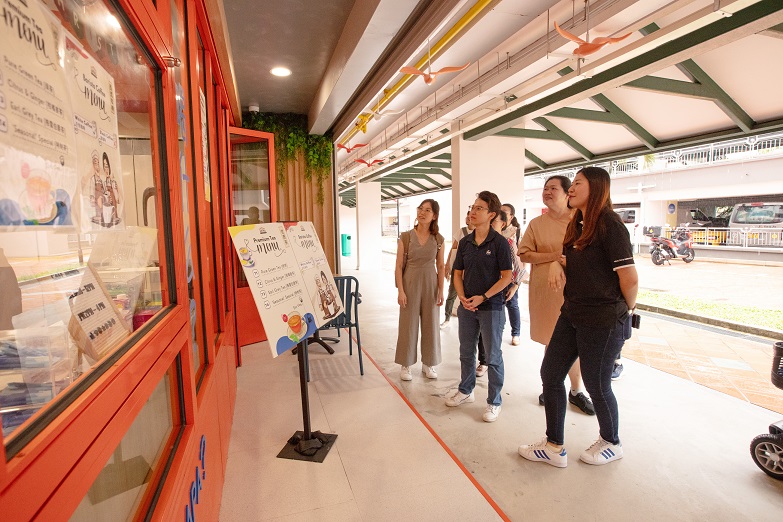Mental well-being is intricately linked to societal factors. There is growing evidence to show that the social determinants of health - education, social network and support, socio-economic status, work environment and job security - can impact mental health outcomes.
The focus of community rehabilitation is on empowering the people with mental health challenges towards independent living in the community, and strengthening family relationships.
The key strategy to achieve these is through providing education and psychosocial support for people with mental health challenges and their caregivers to:
- enhance effective coping skills,
- compliance with medication,
- reduce hospital admissions or length of stay, and
- improve their quality of living.
Community Mental Health Team (CMHT)
CMHT first began as the Community Psychiatric Nursing Service, a programme that focused on administering medication to patients aged 65 and above. But it was found to be insufficient in meeting more complex care needs and thus evolved to encompass rehabilitation and support services provided by a multi-disciplinary team of doctors, medical social workers, nurses, occupational therapists and psychologists.

CMHT nurse administers a depot for a patient during a home visit
In 2008, CMHT was officially established under the Ministry of Health (MOH)'s National Mental Health Blueprint. Focusing on individuals aged between 18 and 65 with mental illnessess, Today, CMHT provides education, counselling and daily living skills training to empower them to live in the community. This includes ensuring that these individuals adhere to their treatments through home visits, during which community psychiatric nurses will assess the patients' condition, provide psychoeducation and psychological support.
The team also coordinates care by connecting recovering individuals to relevant community resources provided by local voluntary welfare organisations (VWOs) such as the Singapore Association for Mental Health (SAMH) and Singapore Anglican Community Services (SACS).
Aged Psychiatry Community Assessment & Treatment Service (APCATS)
APCATS focuses on supporting home-bound individuals aged 65 and above with mental illness or dementia. Direct clinical care is provided to home-bound seniors in the community. Continuing care at home is invaluable for elderly patients who encounter difficulty commuting to the hospital for follow-up psychiatric treatment.

APCATS multi-disciplinary team visits AWWA's integrated social space for seniors, caregivers and residents in Ang Mo Kio
APCATS also partners day care centres, active ageing centres, nursing homes, polyclinics and community outreach and intervention teams, and trains staff of these providers to be able to manage mental health needs of their clients, including depression, anxiety, psychosis and hoarding that has arisen as a result of mental health conditions. Some are even trained and equipped to screen for dementia and depression to enable early detection, with APCATS subsequently carrying out post-screening assessments.
The inception of CMHT in 2008 and APCATS in 2005 has contributed to the reduction of stigma by normalising psychiatric care within the community and home settings. Over the years, more individuals with mental health needs have received care from CMHT and APCATS outside of hospitals. Together, they have supported more than 13,000 adults and seniors with mental health needs, as well as over 150 community agencies since their roll-out.
This article was adapted from NHG LinkedIn: Making Mental Health Services Accessible In the Community (2024).